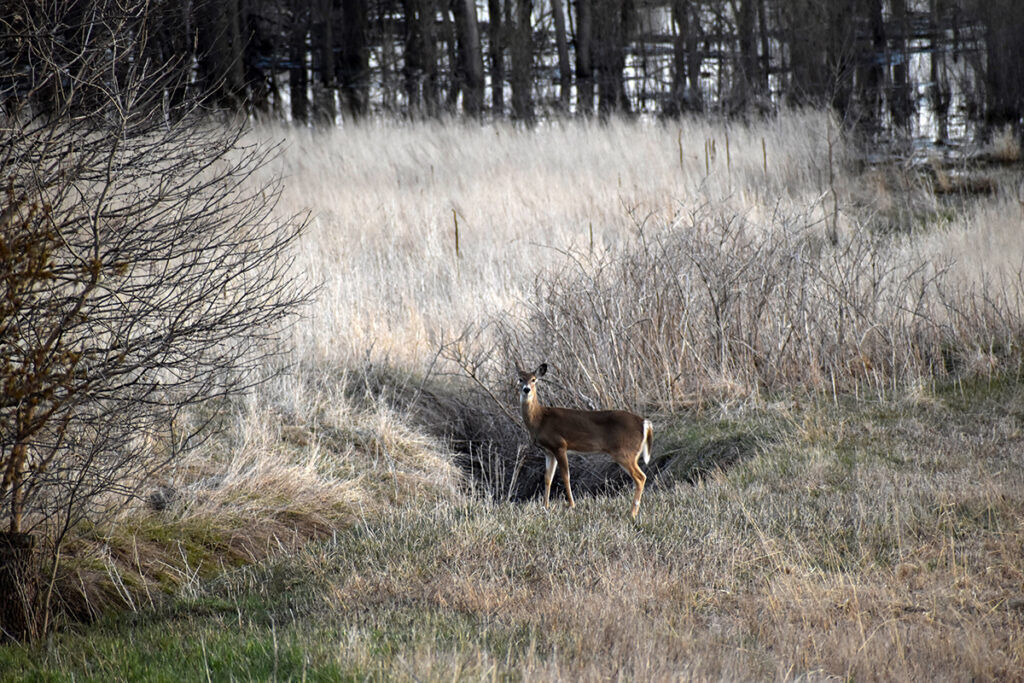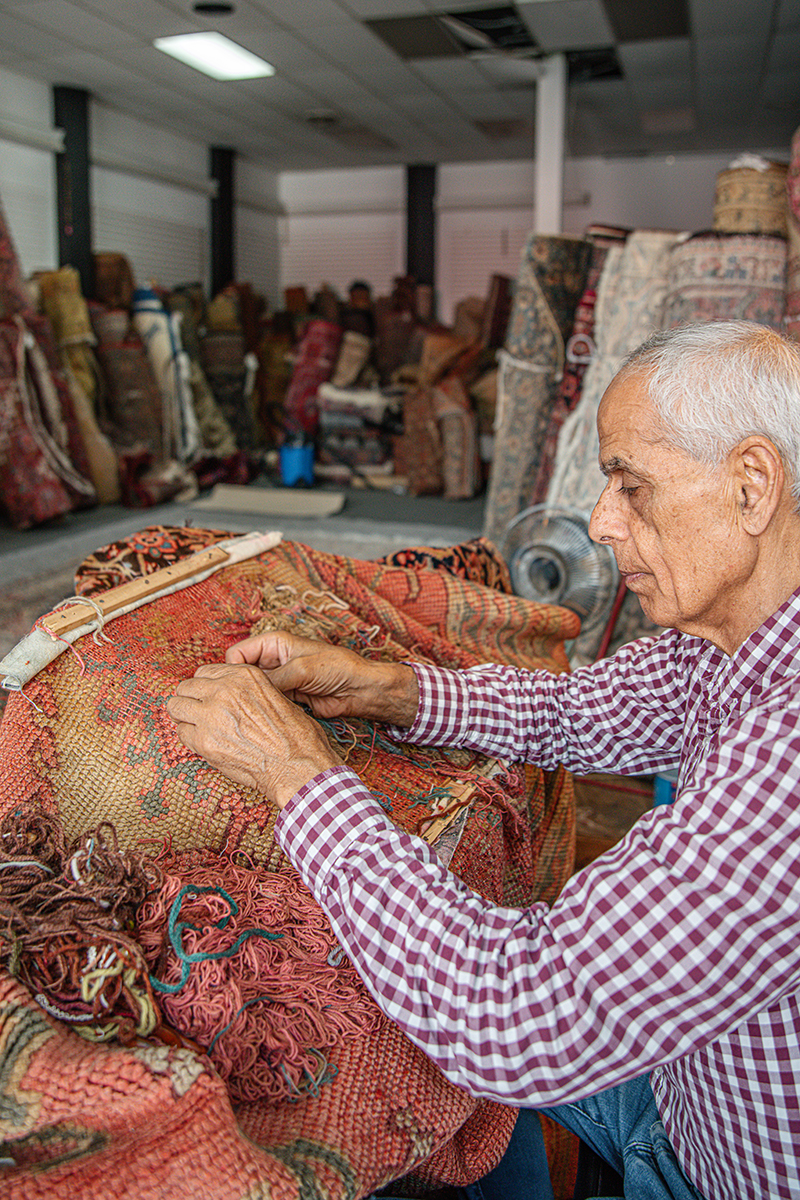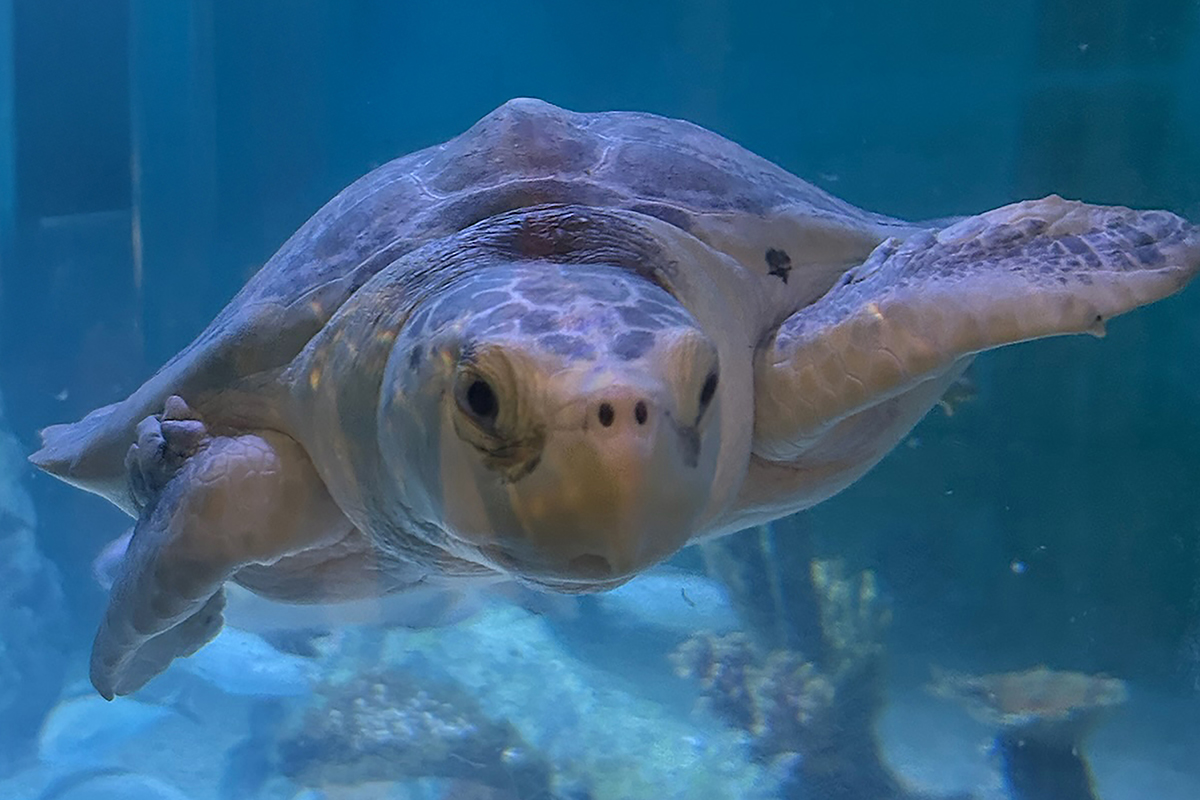Don’t call it Zombie Deer Disease.
“These animals are not aggressive and are not coming for your brains,” says Dr. Krysten Schuler, a research professor who studies chronic wasting disease, a neurological condition that affects deer, elk and moose populations and is colloquially often referred to as zombie deer disease. This brain disease has been found in both the Missouri and Kansas deer populations and is slowly spreading, according to the Missouri Department of Conservation.
Now that hunting season is here, gaming officials in both states are asking hunters to bring in their prey for free testing if they suspect they might have killed an infected deer. Schuler, who works at the Cornell Center for Wildlife Conservation, says there have been no recorded cases of CWD affecting humans, but it’s still not recommended to eat deer that have been infected. Traditional cooking temperatures are not sufficient to remove the disease from infected meat. Regardless, CWD is concerning, as it has the potential to decimate deer populations in the regions and reduce the potential for future generations of hunters.
“Infected deer can live up to two years after contracting CWD, but that usually isn’t the case,” Schuler says. The deer can suffer from aspiration pneumonia. Their erratic behavior and lack of awareness can drastically reduce their lifespan by limiting the ability to forage and making them more susceptible to car strikes.
The disease, which forms a plaque over the animal’s brain and leaves holes in the organ tissue, has been detected in 31 states since 1980, including Missouri and a majority of Kansas counties.
The first case of CWD in Kansas was documented in 2001. As of June 2023, CWD has been detected in 971 wild free-ranging deer.
How can Kansas and Missouri hunters help stop the spread of CWD? “In deer carcasses, the prions responsible for CWD are concentrated in the brain and spinal cord,” Schuler says. “Debone the carcass where it is killed to avoid transporting those to unaffected populations. Don’t transport dead deer, and don’t use natural deer urine.” Hunters are encouraged to have their kills tested for CWD to insure it is safe to eat as well as to help track the disease through deer populations.
Both the Kansas Department of Wildlife and Parks and the Missouri Department of Conservation are offering free CWD testing. For more information about CWD testing as well as how to report erratic behavior in deer, go to the Kansas Department of Wildlife and Parks website, ksoutdoors.com, or the Missouri Department of Conservation’s website, mdc.mo.gov.





